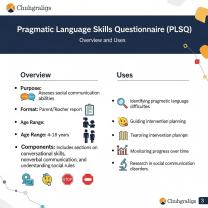How to get a job in education?
Getting a job in education requires careful planning, preparation, and a commitment to ongoing professional development. Whether you're looking to become a teacher, administrator, counselor, or work in another education-related role, here are steps to help you launch your career in education:
Define Your Career Goals:
- Identify the specific role within education that you're interested in pursuing. Determine whether you want to be a teacher, administrator, counselor, education consultant, or work in other support roles.
Research Educational Requirements:
- Understand the educational and certification requirements for your chosen role. Different positions may have specific degrees, certifications, or licenses that are necessary. Check the requirements in the location where you plan to work.
Earn the Appropriate Education and Credentials:
- Pursue the necessary education and credentials based on your career goals. This may involve earning a bachelor's or master's degree in education, completing a teacher preparation program, or obtaining specific certifications.
Gain Relevant Experience:
- Seek opportunities for relevant experience. This could include student teaching, internships, volunteering, or working in educational support roles. Practical experience can enhance your resume and make you a more competitive candidate.
Build a Strong Resume:
- Craft a professional and targeted resume that highlights your education, certifications, relevant experience, and any special skills or achievements. Tailor your resume to align with the specific requirements of the education job you're applying for.
Develop a Professional Portfolio:
- Create a portfolio showcasing your work, lesson plans, projects, and other accomplishments. A portfolio is especially valuable for teachers and educators, as it provides evidence of your skills and teaching philosophy.
Networking:
- Attend education conferences, workshops, and networking events to connect with professionals in the field. Networking can open doors to job opportunities and provide insights into the education industry.
Research Job Opportunities:
- Stay informed about job opportunities in education by regularly checking job boards, school websites, and educational organizations. Utilize online platforms like LinkedIn and professional associations to explore job openings.
Prepare for Interviews:
- Practice common interview questions and be ready to discuss your educational philosophy, teaching strategies, and relevant experiences. Showcase your passion for education and your commitment to student success.
Obtain Necessary Clearances:
- Depending on the position and location, you may need to undergo background checks, obtain clearances, and comply with other regulatory requirements. Ensure you have all necessary documentation in order.
Continuing Professional Development:
- Demonstrate a commitment to continuous learning and professional development. Attend workshops, pursue additional certifications, and stay informed about current trends and research in education.
Apply Strategically:
- Submit well-crafted application materials, including a tailored cover letter and resume, for positions that align with your skills and career goals. Customize your application for each specific job opening.
Follow Up:
- After applying and interviewing, follow up with thank-you emails or letters to express your continued interest in the position. This demonstrates professionalism and reinforces your enthusiasm for the role.
Remember that the field of education values not only qualifications but also a passion for teaching and a commitment to students' success. Be persistent, open to learning, and adaptable to changes in the educational landscape. Good luck in your pursuit of a rewarding career in education!
What strategies can be employed to secure a job in the field of education?
Here are some strategies that can be employed to secure a job in the field of education:
- Earn a relevant degree. In most cases, you will need at least a bachelor's degree in education or a related field to be eligible for teaching positions. However, some states require teachers to have a master's degree.
- Complete teacher certification. In addition to a degree, you will also need to complete teacher certification in the state where you want to teach. This typically involves passing a series of exams and completing a student teaching internship.
- Gain relevant experience. Any experience working with children or in an educational setting can be helpful. This could include volunteering in a school, working as a camp counselor, or tutoring students.
- Network with other educators. Get to know teachers, principals, and other education professionals in your area. Attend conferences and workshops, and join online and in-person networking groups.
- Tailor your resume and cover letter to each job you apply for. Highlight your relevant skills and experience, and explain why you are passionate about education.
- Prepare for interviews. Practice answering common interview questions, and be prepared to discuss your teaching philosophy and why you are interested in the specific position you are interviewing for.
How does networking play a role in obtaining a position in education?
Networking can play a significant role in obtaining a position in education. Word-of-mouth is still one of the best ways to find out about job openings, and many schools prefer to hire candidates who have been referred by someone they trust.
Here are some tips for networking in education:
- Attend school board meetings, PTA meetings, and other education-related events. This is a great way to meet other educators and learn about job openings.
- Join professional organizations for educators. This is another great way to network with other educators and learn about job openings.
- Connect with educators on social media. There are many online groups and forums where educators can connect with each other.
- Reach out to educators you admire. Ask them for informational interviews or advice on how to get started in your career.
Are there specific qualifications or certifications that enhance job prospects in education?
In addition to a degree and teacher certification, there are a number of specific qualifications and certifications that can enhance job prospects in education. Some of the most common include:
- ESL certification: This certification is required to teach English as a second language in most states.
- Special education certification: This certification is required to teach students with special needs in most states.
- Gifted and talented certification: This certification is required to teach gifted and talented students in most states.
- National Board Certification for Teachers (NBCT): This is a prestigious certification that is recognized by schools nationwide.
There are also a number of certifications that are specific to certain subjects or grade levels. For example, there are certifications for teaching math, science, English, and social studies.
Earning additional qualifications and certifications can demonstrate your commitment to teaching and your expertise in a particular area. This can make you more competitive in the job market and increase your chances of landing a desirable position.













